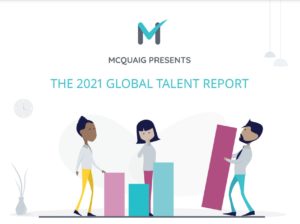Whilst we are clearly out of a recession, albeit marginally, we are still in a competitive market place. Employers and recruitment agencies still need to ensure they embrace the many opportunities offered through social media. If used well, social media is a platform that can deliver good quality candidates whilst ensuring that organisations differentiate themselves.
Social media has changed the face of the recruitment industry, according to a recent survey. 66% of all companies stated that they are investing in social media as part of their business development strategy for the foreseeable future.
There are two clear benefits to developing a good social media strategy
1. Cost effective and targeted to identify quality candidates in addition to being a useful research tool
2. Social media can be a good candidate retention tool through knowledge distribution (announcing quality articles, jobs that may not be in the public arena and so on).
The recruitment and HR industry will benefit by having a clear understanding of how effective online marketing and social media can be to their businesses. Despite the many positive articles that can be found online there are still many organisations that voice their doubts as to how such tools can be used to attract candidates.
Some suggest that platforms such as Linked In and Twitter are merely passing “fads”. As with all things, longevity does have to be taken into account. We are now living in an age where companies need to demonstrate their strengths through good communication. This is at the very heart of a good people strategy that embraces social media.
There is an event (due to take place in April this year) on social media in the recruitment industry. There will be sessions on how to utilise Linked In, Twitter and Facebook (and is probably one of many events taking place this year).
Here at the Holst Group, we have been able to clearly demonstrate our expertise in psychometric testing and employee evaluation through our blog content and running commentary which has been supported through our Twitter and Linked In activities.
As one blog we read recently stated, “Social media is an unstoppable force that will engulf the recruitment industry”. It has enabled many of us to demonstrate our knowledge and expertise, particularly in specific sections of the industry such as psychometric testing.
But it’s not that simple. In the golden days of recruiting we would hunt for days to find a candidate with a top university degree, working for a top notch company and considered priceless.
Today however, we run a simple search on LinkedIn or Twitter and have a large number of suitable candidates at our fingertips. Today’s problem is the opposite of yesterday – candidate scarcity and limited information has led to an overabundance of candidates and even more information available on each one.
Our information “super highway” has given us a fresh headache – how do we evaluate a potential candidate via their social media activity? Can we clearly see a general skill set, how accurate is their work history and education? Finally, which one should you contact?
This latter question is probably the easiest to address: LinkedIn gives us the ability to review genuine recommendations from peers to managers which will play a pivotal role in the final decision. A completed profile will also help to influence the final decision as will group memberships, size and calibre of their network.
Do candidates have a blog of their own and does it reflect their professional life whilst giving an insight into their interests?
Facebook can also be indicative of a candidates personality – for example, does their Facebook account reflect the balance between a personal and professional life? Is their account family friendly?! There are many legal debates currently about how a future employer can and should interpret a Facebook account – ultimately a Facebook account will give a good indication of character!
But why is all of this important in today’s marketplace? Most employers these days are looking for the right skills and experience – but a good “character fit” is equally crucial, hence the growth in psychometric testing and career assessments in the last few years. As we read recently in a blog “A person’s social media footprint gives employers (and others) the best insight into passions, interests, communication styles, work habits, work/life balance and all sorts of other valuable information”











